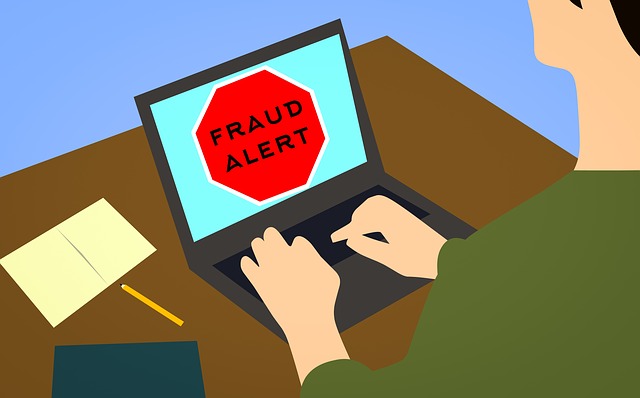Over time, cryptocurrency has gained acceptance as a trustworthy substitute for fiat money. Many saw it as an appealing financial alternative, as the BTC found in 2009, and the widespread use of cryptocurrencies is not without risks and scams. In this article, we’ll examine bitcoin’s negative aspects, such as its potential risks and scams.
Social Media and it’s Side effects
Lack of Regulation
The absence of regulation is one of the major threats posed by cryptocurrencies. Cryptocurrency is not back by any government or financial institute, in contrast to conventional currencies. Since there is no regulating agency, the transactions cannot be monitored to determine whether they are lawful. Scammers and con artists will thus more frequently target bitcoin transactions.
Hacking and Cybersecurity Risks
Cybersecurity and hacking hazards are yet another significant danger relating to cryptocurrencies. Online cryptocurrency transactions are encrypted and safeguarded by sophisticated algorithms. These security precautions are not flawless, though, and it has been reported that hackers have been known to use flaws in cryptocurrency systems to steal substantial sums of digital money.
Ponzi and Pyramid Schemes
Among the most popular cryptocurrency scams are pyramid and Ponzi schemes. These schemes entice investors with great returns on their investments, but in practise they only use the money from new investors to pay off those from the past. The scam eventually fails, leaving investors with nothing.
10 Typical Trading Errors That Will Cost You Money
Pump and Dump Schemes
An additional kind of bitcoin fraud is pump and dump scams. Through the dissemination of false information regarding a certain cryptocurrency, a group of investors inflates its price artificially in this scam. When the price increases, they sell their shares, which drives the price down and causes other investors to suffer huge losses.
Fake ICOs
Companies frequently use initial coin offerings (ICOs) to raise capital using cryptocurrencies. However, phoney ICOs have grown to be very common, as con artists fabricate businesses and utilise social media to promote their ICOs. After taking money from investors, they vanish without providing any goods or services.
Malware and Phishing Scams
In the bitcoin industry, malware and phishing schemes are also frequent. Phishing schemes can deceive users into disclosing their private keys or seed phrases, which can be used to access their bitcoin, while malware can infect a computer and steal money from wallets.
The Importance of Due Diligence
When investing in cryptocurrencies, vigilance is crucial. In order to make sure the investment offer is authentic and not a scam, it entails completing extensive study. It is crucial to check the legitimacy of the business or person providing the investment opportunity and to examine their prior performance in the bitcoin sector.
Additionally, investors should spend some time learning about the particular cryptocurrency they intend to buy. Understanding the technology, the team, and the market need for the project are all part of this. Investors should consider the volatility of the cryptocurrency’s price as it may affect the possible return on investment.
Additionally, investors need to be wary of high-pressure sales techniques and guarantees of speedy profits. The same level of caution that you would use with any other investment opportunity should be used to cryptocurrency investments. Instead of being influenced by short-term rewards, it is crucial to have patience and a long-term perspective.
Artificial Intelligence and daily life
Protecting Your Investment
Cryptocurrency investors should also take precautions to safeguard their capital. This includes using two-factor authentication, strong passwords, and public Wi-Fi networks to protect their digital wallets. Additionally, investors need to be wary of phishing schemes and should avoid downloading unidentified software or clicking on any strange links.
Investors can also think about storing their bitcoin in a hardware wallet. Hardware wallets are tangible objects that store digital cash away from the internet, making them less vulnerable to cyberattacks and hacking. Hardware wallets are an excellent investment for individuals who want to be sure their bitcoin is secure, even though they are expensive.
Conclusion
In conclusion, While investing in cryptocurrencies might be thrilling, it is important to be aware of the dangers and frauds involved. When investing in cryptocurrencies, there are a number of possible hazards to be aware of, including a lack of regulation, hacking and cybersecurity concerns, Ponzi and pyramid schemes, pump and dump schemes, false ICOs, malware, and phishing scams. Before investing in any cryptocurrency, it is crucial to conduct comprehensive research. You should also exercise caution when presented with investment options that appear unreal.
FAQ’s (Frequently Asked Question’s)
Q1: What are the main risks associated with investing in cryptocurrencies?
Cryptocurrency investments include diverse dangers, together with market volatility, regulatory changes, and technological vulnerabilities. Prices can vary dramatically, leading to potential monetary loss.
Q2: How can I protect myself from market volatility?
Diversify your investment portfolio, set practical desires, and stay informed approximately marketplace developments. Avoid investing extra than you can find the money for to lose and don’t forget consulting with a financial guide.
Q3: What are the regulatory risks in the cryptocurrency space?
Regulatory environments for cryptocurrencies vary globally. Changes in authorities policies or felony frameworks can effect the market and the price of your investments. Stay updated on regulatory trends for your place.
Q4: How can I identify cryptocurrency scams?
Be cautious of promises of assured excessive returns, unsolicited investment gives, and projects with doubtful desires. Research and verify the legitimacy of tasks and use legitimate systems for transactions.
Q5: Are there specific types of scams to watch out for?
Yes, not unusual scams consist of Ponzi schemes, pump and dump schemes, faux ICOs (Initial Coin Offerings), and phishing attacks. Be cautious of unsolicited messages and usually affirm data earlier than taking any motion.
Q6: Can I recover funds lost in a cryptocurrency scam?
Unfortunately, cryptocurrency transactions are regularly irreversible, making healing difficult. Prevention is fundamental; be vigilant, use secure wallets, and report scams to applicable government.
Q7: How can I secure my cryptocurrency holdings?
Use hardware wallets for lengthy-term garage, allow two-factor authentication, and hold private keys steady. Regularly update your software and be careful of phishing tries.





